You’re drowning at work. Irritated at small requests. Collapsing under the weight of big projects. In short – no CAPTCHA needed for this one – you’re human and you're overwhelmed at work.
Feeling burnout? You’re not alone. The Deloitte Global 2022 Gen Z and Millennial Survey showed that nearly 1 in 2 Millennial workers are feeling burned out at work and 1 in 4 “would like to leave their jobs within two years.”
So, What to do when feeling overwhelmed at work? Your instinct might be to work harder to simply outlast what’s in your way. But all you’re doing is running out of runway faster and operating at a diminished capacity because of all the resources you’re putting toward solving problems inefficiently.
You need a sustainable and sustained response to feeling overwhelmed. Establish clear priorities and boundaries to simplify your schedule and communicate your needs to teammates. Free up additional capacity by offloading ideas in writing and offloading tasks to your team. And, on occasion, let yourself reset with a pause at work.
Read on for our five strategies to help avoid feeling overwhelmed at work.
What it means to be overwhelmed at work
It’s difficult to look directly at stress. But stress is not the Eye of Sauron. And you don’t have to live in the shadow of Mount Doom.
Work avalanches come in two stages: discomfort and overwhelm.
-Discomfort doesn’t have to be a negative. The feeling of being out of your depth isn’t always a sign that something needs to change. When you take on additional responsibilities, author Tanya Reilly suggests it’s normal to feel uncertainty at work.
“That feeling of discomfort is called learning,” says Reilly, who wrote The Staff Engineer’s Path: A Guide For Individual Contributors Navigating Growth and Change.
And, good news, Reilly points out “that managing the discomfort is a skill you can learn.” We’ll show you how to effectively structure your work and manage boundaries below to keep discomfort from evolving into overwhelm.
-You’re overwhelmed when you can’t work effectively. When discomfort rises to a level that it’s impacting your work performance, that’s when you need to find ways to manage your workload.
Emotional overwhelm prevents you from absorbing knowledge and affects your ability to be present for your team. If you can’t get into a deep flow state or your to-do checklist never seems to shorten, it’s time to start proactively managing your stress.
What to do when feeling overwhelmed at work
1. Define your priorities to help guide your schedule
Let’s acknowledge that you probably do have too many things to do. Those responsibilities come with a cost as you’re constantly weighing what needs to be done, exhausted by a series of small dilemmas that eat your calendar like a Pac-Man game set on free play.
You’re suffering from decision fatigue and, as Sarah Drasner, author of Engineering Management for The Rest of Us, notes, “you can make poor choices when you’re not able to make a clear decision.”
How do you reduce the number of decisions that you have to make? Step back and decide what tasks, meetings, and projects align with your values because as Drasner notes, “what we work on is an expression of our values.” Create a decision-making matrix to evaluate your current obligations and future goals. Seek out feedback from project managers and developers to tweak or confirm what you’re doing.
As you key in what matters to you and your team, it becomes easier to weigh and reshape meetings or processes to become more efficient. An added bonus is that a small to-do list appears more manageable and gives you the small dopamine hits of crossing off items when they’re completed.
Stephen Covey, author of The 7 Habits of Highly Effective People, cautions you to not get stuck on your schedule and instead acknowledge that you’re reshaping your choices.
“Time management is really a misnomer, the challenge is not to manage time, but manage ourselves,” says Covey.
2. Set boundaries for yourself and your team
While you’re building the space to do meaningful work, you have to build in boundaries to protect that space. And that requires a paradigm shift about your own availability.
It can feel like you’re pushing people away when you set your status as unavailable on Slack; but Alice Boyes, PhD and author of The Healthy Mind Toolkit, sees it as another way to express your priorities or values.
“Consider that when people take a while to respond, it sends the signal that they’re busy and prioritizing,” says Boyes. “And may lead to other people respecting their time to a greater extent.”
You’re telling your team that you’re in a flow state and encouraging them to protect their own productivity. While you should always acknowledge a request, you don’t have to raise the newest request to the top of the pile. Instead, assess what’s in front of you or bring a collection of potential requests to your manager and talk through them to discover what aligns with the team’s priorities.
3. Write things down to free up memory
Solid boundaries help prevent distractions and improve your communication with other team members; but the key to corralling your own mind and reducing feeling overwhelmed at work is to build a practice of taking notes.
Writing ideas down helps combat attention residue, the part of your brain that wants to keep surfacing and working through unfinished problems. We’ve written in the past about The Zeigarnik Effect, wherein psychologist Bluma Zeigarnik wondered why waiters in a Vienna restaurant could correctly remember an entire table’s order without writing a single thing down.
Zeigarnik discovered through studies – conducted after dinner – that the waiters’ thoughts were an unbroken circuit. They remembered complicated tasks because their brain kept holding the idea that a customer ordered a rare steak until the steak was at the table.
Your work often has a longer timeline than your dinner reservation. As a result, you’ve got to break the circuit and unburden your mind by writing down your tasks. Because the cost of holding all of that information (often called attention residue) compromises your ability to take on new tasks and process new information.
Writing things down frees up your working memory to focus on a code review or be present in a meeting. Reilly encourages you to create an anchor, building a new habit of taking notes to track your task list, as well as capture key ideas from meetings.
4. Accept that you don’t have all the answers
As you start to organize and document what you’re doing, that’s also the right time to acknowledge that you don’t have to do everything by yourself.
When you have too many tasks, your instinct is to work harder and push through the challenge. There are three main reasons that’s the case: you don’t acknowledge the work of meetings, it’s how you moved forward in the past, and you underestimate how willing others are to help.
- Meetings are work. Running meetings and managing people is what Drasner calls the “hard, human work.” It’s not easy to quantify what you’ve accomplished in a meeting, so you may unconsciously discount the time you spend facilitating a discussion. Start giving yourself credit for the “hard, human work” and celebrate the progress that comes as a result of your entire team’s efforts.
- Past you won’t have all the answers. In the earlier days of your career, your ability and success as an individual contributor was dependent on you producing code. And you were, rightly, rewarded with a promotion to engineering lead. Will Larson, the CTO of Calm and author of Lethain, recognizes that it's easy for developers to fall into a trap of inefficient solutions.
“Under pressure, most people retreat to their area of highest perceived historical impact, even if it isn’t very relevant to today’s problems,” says Larson.
You have to recognize that you’ve moved from a place where your success was dependent on you producing things to a position where other people now produce things with your input.
- Let your team help. Just as you might forget to acknowledge your own progress, you’re likely underestimating how likely it is that there is someone who can help you on your team.
Vanessa Bohns, a professor of organizational behavior at Cornell University and author of You Have More Influence Than You Think, studied how people respond to requests and found something fascinating: we regularly think someone is going to say no and we’re likely very wrong.
It turns out that we underestimate the likelihood of someone doing what we ask by 48 percent. Bohns believes we tend to forget how awkward it is for somebody to refuse a request. So, the next time you think everyone else is too busy to help, consider the idea that instead you’re assuming they can’t help instead of simply asking and finding out what’s possible.
5. Step away from the keyboard
You can’t always strategize your way through feeling overwhelmed. Sometimes you have to change what you’re doing. There’s a difference between when you’re stretching as you learn and when you’re close to redlining and blowing an engine.
Rebecca Zucker, an executive coach and founding partner at Next Step Partners, contends that trying to push through your workload comes with a substantial cost and wrecks your productivity.
“The cognitive impact of feeling perpetually overwhelmed can range from mental slowness, forgetfulness, confusion, difficulty concentrating or thinking logically, to a racing mind or an impaired ability to problem solve,” says Zucker. “Cognitive fatigue can also happen, making us more prone to distractions and our thinking less agile.”
Sarah Drasner encourages you to track your energy throughout the day and make a plan based on your “personal energy cycle.” By discovering when you have low energy during the day, you can work to align your schedule with your own internal cycle.
Breaks are critical. It’s not only a way to release tension, the physical act of getting up and outside has other clear tangible benefits.
A 2020 study published in The Journal of Environmental Psychology found that a 30-minute walk in an urban park “reduced negative mood and elicited more awe.” A literal change of scenery breaks the swell of overwhelm and allows your mind and emotional state to reset.
No system is perfect or fixed in stone. As you work toward building a better system to manage your schedule and establish boundaries, understand that work will continue to stress the schedule you’re creating. Remember to continually adapt to what you need. Don’t wait until you’re burned out.
Photo by elisa_ventur on Unsplash.


